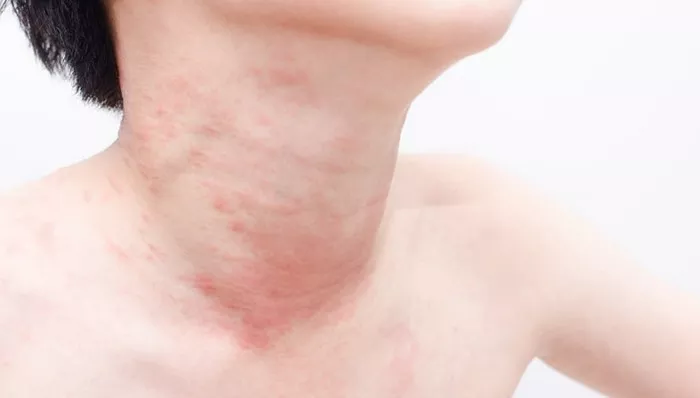Hives, medically known as urticaria, are raised, itchy welts that appear on the skin. They can vary in size and shape and often occur due to an allergic reaction or other triggers. Recurrent hives can be frustrating and disruptive, prompting individuals to seek answers to why they keep experiencing this condition. This article explores the causes, triggers, diagnosis, treatment options, and management strategies for recurrent hives, providing a comprehensive overview for those affected by this common skin issue.
Understanding Hives
Hives are characterized by their sudden onset and typically resolve within hours to days. Key aspects include:
- Appearance: Raised, red or white welts on the skin that can vary in size and shape.
- Itchiness: Hives are often intensely itchy, which can worsen with scratching.
- Duration: Individual hives usually fade within 24 hours, but new ones can appear as old ones fade, leading to recurrent episodes.
Causes of Recurrent Hives
1. Allergic Reactions: Allergens such as foods (e.g., nuts, shellfish), medications (e.g., antibiotics, aspirin), insect stings, or environmental triggers (e.g., pollen, pet dander) can cause hives in susceptible individuals.
2. Non-Allergic Triggers: Hives can also result from non-allergic triggers, including:
- Physical Stimuli: Exposure to cold (cold urticaria), heat (heat urticaria), pressure (pressure urticaria), or sunlight (solar urticaria).
- Emotional Stress: Stress and anxiety can trigger hives or exacerbate existing ones.
- Exercise: Exercise-induced urticaria can occur during or after physical activity.
- Infections: Viral or bacterial infections can sometimes trigger hives.
- Medications: Some medications can cause hives as a side effect, even if not taken recently.
- Autoimmune Conditions: Conditions such as autoimmune urticaria or chronic spontaneous urticaria (CSU) can cause recurrent hives without an identifiable trigger.
3. Underlying Health Conditions: Certain systemic diseases, such as thyroid disorders or autoimmune diseases, may be associated with chronic hives.
Diagnosis of Recurrent Hives
Diagnosing recurrent hives involves a detailed medical history, physical examination, and sometimes additional tests:
- Medical History: Discussing the timing, duration, and triggers of hives episodes.
- Physical Examination: Examining the skin to assess the appearance of hives and rule out other skin conditions.
- Allergy Testing: Skin prick tests or blood tests (e.g., IgE levels) can identify allergens that may trigger hives.
- Provocation Tests: In cases of suspected physical urticarias, provocation tests may be conducted under medical supervision to confirm triggers.
Treatment Options for Recurrent Hives
Treatment for recurrent hives focuses on relieving symptoms and addressing underlying causes when possible:
1. Antihistamines: Non-sedating antihistamines are usually the first-line treatment to reduce itching and prevent new hives from forming.
2. Corticosteroids: Short courses of oral corticosteroids may be prescribed for severe episodes or when antihistamines alone are insufficient.
3. Avoidance of Triggers: Identifying and avoiding triggers, such as specific foods or medications, can help prevent recurrent episodes.
4. Other Medications: In cases of chronic hives that do not respond to antihistamines, medications such as omalizumab (Xolair) or cyclosporine may be prescribed.
5. Biological Therapies: Emerging therapies targeting specific immune pathways are being investigated for chronic and severe cases of urticaria.
Management Strategies for Recurrent Hives
In addition to medical treatment, managing recurrent hives involves lifestyle adjustments and preventive measures:
1. Identifying Triggers: Keeping a diary of symptoms and activities can help identify triggers, facilitating avoidance strategies.
2. Stress Management: Practicing relaxation techniques and stress-reduction methods can help minimize stress-related hives.
3. Skin Care: Avoiding harsh soaps, tight clothing, and excessive scratching can prevent irritation and worsening of hives.
4. Emergency Action Plan: Individuals with severe allergic reactions (anaphylaxis) should have an emergency action plan and carry epinephrine (EpiPen) as prescribed.
Psychological Impact of Recurrent Hives
Living with recurrent hives can impact quality of life due to:
- Discomfort: Itching and discomfort from hives can interfere with daily activities and sleep.
- Emotional Distress: Anxiety, frustration, and embarrassment over visible hives can affect self-esteem and social interactions.
- Coping Strategies: Counseling and support groups can provide coping strategies and emotional support for managing chronic hives.
SEE ALSO: What Does a Stress Hive Look Like
Research and Future Directions
Ongoing research in urticaria focuses on:
- Immune Mechanisms: Understanding the underlying immune mechanisms driving chronic urticaria.
- Personalized Medicine: Tailoring treatment approaches based on individual triggers and immune profiles.
- New Therapies: Investigating novel therapies and biologics to improve symptom control and quality of life for patients with chronic hives.
Conclusion
Recurrent hives can be a challenging condition characterized by sudden outbreaks of itchy welts on the skin. Understanding the causes, triggers, diagnosis, and treatment options is essential for managing and effectively treating this condition. By working closely with healthcare providers to identify triggers, develop treatment plans, and implement lifestyle adjustments, individuals with recurrent hives can achieve symptom relief and improve their quality of life. Ongoing research holds promise for advancing our understanding and treatment of recurrent hives, offering hope for better outcomes for those affected by this common skin disorder.
Related Topics:


























